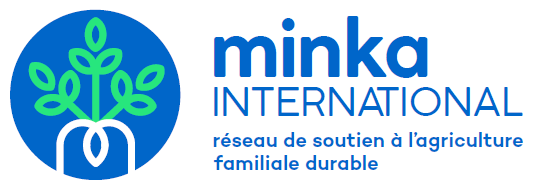WHAT IS FOGAL?
The Latin American Guarantee Fund is a guarantee institution aiming to facilitate access to credit for organisations developing economic activities in rural areas of Latin America. It was created in 2004 by SOS FAIM and other local partners. The fund is active in the Andean area. It is one of the most traditional mechanisms for channelling resources to low-income sectors that do not have sufficient resources to access the traditional financial system.
WHAT DOES FOGAL DO?
FOGAL provides guarantee services, loans and support to agricultural producers’ organisations and microfinance institutions for access to credit for small-scale rural production. It facilitates linkages between the different actors to increase the positioning of family farming. Access to credit and various financial services is an important tool for reducing poverty in the region.
AND MORE CONCRETELY?
At the financial level, FOGAL provides innovative solutions by promoting small rural farming communities and working to improve their quality of life.
FOGAL guarantees loans with the cooperation of over 15 financial institutions and national and international banks. Some 100 organisations have benefited from convincing results as a result of these loans. More than US$6 million has been placed in guarantees and loans in force. Some thirty organisations (producers and microfinance organisations) in the three Andean countries (Bolivia, Ecuador and Peru) have access, thanks to FOGAL’s guarantees, to financing to develop their activities.
WHERE DOES THE FOGAL ACT?
Bolivia, Ecuador, Peru.
WHAT IS THE SITUATION IN THESE COUNTRIES?
Despite strong economic growth, Bolivia remains one of the poorest countries in South America. Poverty is concentrated in rural areas and affects mostly women. About 20% of the population is undernourished. The current development model is based on the extraction of primary resources with a high environmental impact. The state is the central actor in the economy but invests little in family farming. Agricultural production favours stronger exports rather than local and sustainable production that would ensure food security for the population. In Ecuador, despite significant economic growth over the last decade and a consequent general decline in poverty figures, rural areas benefit much less from these advances. Still 43% of the population suffers from poverty, which affects mostly women and indigenous people. Two agricultural models coexist in Ecuador: export agriculture and family agriculture. This coexistence implies a strong inequality in access to production factors, with unfavourable relations for small farmers in terms of access to land, irrigation water and credit. In Peru, despite significant economic growth, strong inequalities remain. The cities are doing better, but rural areas are still very much affected by poverty and food insecurity. For example, there has been an alarming increase in the rate of anaemia in children under three years old. In general, in this Andean area, the question of access to finance for agricultural production organisations and rural microfinance institutions is a major issue and the high risk is very often cited to justify the low amounts dedicated to credit for family farming.
Site web : http://fogalgarantia.org/
Siège : Peru
Pays d'action : Bolivia, Ecuador, Peru.
Actions : Provision of guarantees to facilitate access to credit

